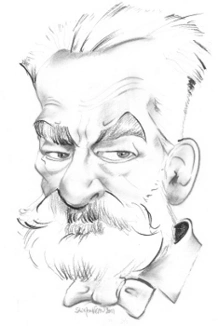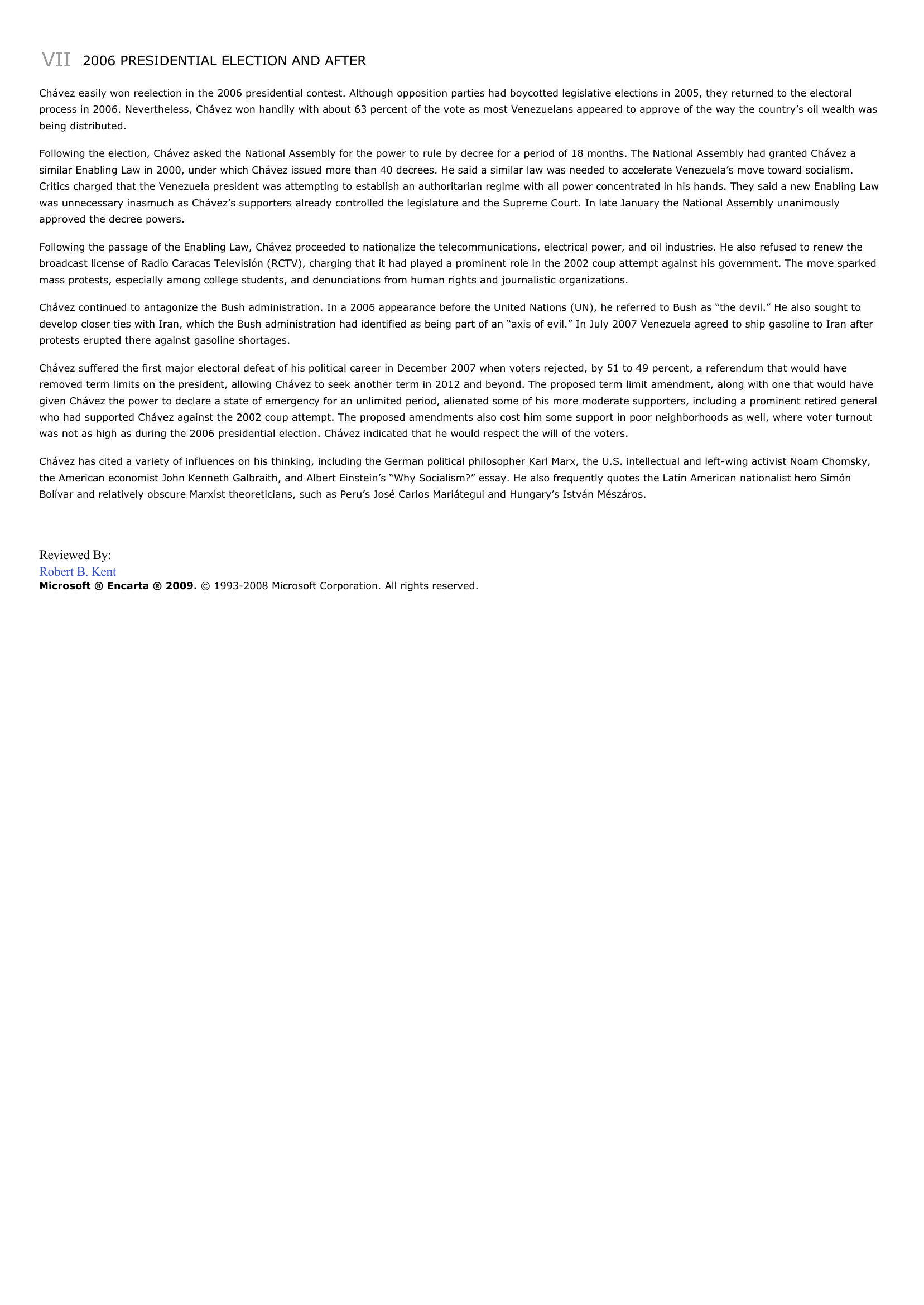Hugo Chávez.
Publié le 03/05/2013

Extrait du document


«
VII 2006 PRESIDENTIAL ELECTION AND AFTER
Chávez easily won reelection in the 2006 presidential contest.
Although opposition parties had boycotted legislative elections in 2005, they returned to the electoralprocess in 2006.
Nevertheless, Chávez won handily with about 63 percent of the vote as most Venezuelans appeared to approve of the way the country’s oil wealth wasbeing distributed.
Following the election, Chávez asked the National Assembly for the power to rule by decree for a period of 18 months.
The National Assembly had granted Chávez asimilar Enabling Law in 2000, under which Chávez issued more than 40 decrees.
He said a similar law was needed to accelerate Venezuela’s move toward socialism.Critics charged that the Venezuela president was attempting to establish an authoritarian regime with all power concentrated in his hands.
They said a new Enabling Lawwas unnecessary inasmuch as Chávez’s supporters already controlled the legislature and the Supreme Court.
In late January the National Assembly unanimouslyapproved the decree powers.
Following the passage of the Enabling Law, Chávez proceeded to nationalize the telecommunications, electrical power, and oil industries.
He also refused to renew thebroadcast license of Radio Caracas Televisión (RCTV), charging that it had played a prominent role in the 2002 coup attempt against his government.
The move sparkedmass protests, especially among college students, and denunciations from human rights and journalistic organizations.
Chávez continued to antagonize the Bush administration.
In a 2006 appearance before the United Nations (UN), he referred to Bush as “the devil.” He also sought todevelop closer ties with Iran, which the Bush administration had identified as being part of an “axis of evil.” In July 2007 Venezuela agreed to ship gasoline to Iran afterprotests erupted there against gasoline shortages.
Chávez suffered the first major electoral defeat of his political career in December 2007 when voters rejected, by 51 to 49 percent, a referendum that would haveremoved term limits on the president, allowing Chávez to seek another term in 2012 and beyond.
The proposed term limit amendment, along with one that would havegiven Chávez the power to declare a state of emergency for an unlimited period, alienated some of his more moderate supporters, including a prominent retired generalwho had supported Chávez against the 2002 coup attempt.
The proposed amendments also cost him some support in poor neighborhoods as well, where voter turnoutwas not as high as during the 2006 presidential election.
Chávez indicated that he would respect the will of the voters.
Chávez has cited a variety of influences on his thinking, including the German political philosopher Karl Marx, the U.S.
intellectual and left-wing activist Noam Chomsky,the American economist John Kenneth Galbraith, and Albert Einstein’s “Why Socialism?” essay.
He also frequently quotes the Latin American nationalist hero SimónBolívar and relatively obscure Marxist theoreticians, such as Peru’s José Carlos Mariátegui and Hungary’s István Mészáros.
Reviewed By:Robert B.
KentMicrosoft ® Encarta ® 2009. © 1993-2008 Microsoft Corporation.
All rights reserved..
»
↓↓↓ APERÇU DU DOCUMENT ↓↓↓
Liens utiles
- Hugo Chávez 1 INTRODUCCIÓN Hugo Chávez Después de encabezar en 1992 una rebelión militar
- Chávez, Hugo - biographie.
- CHÁVEZ Hugo
- Chávez, Hugo
- « Vini, Vidi, Vixi », Les Contemplations, Victor Hugo


